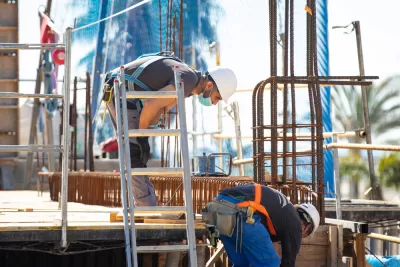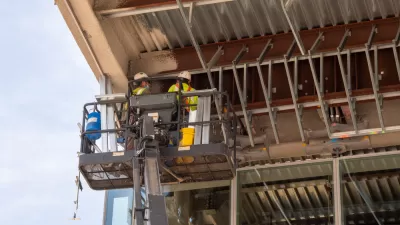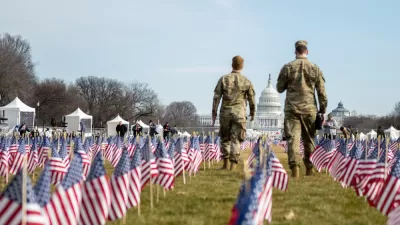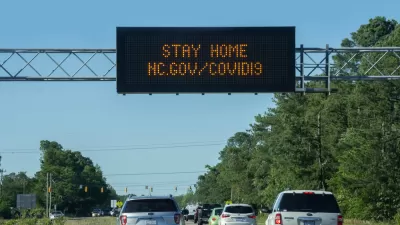The changes coming to the construction industry to protect the safety and health of workers during the pandemic could stay in place for the foreseeable future.

When the pandemic first hit, two approaches to construction work emerged. In one kind of place, most notably Boston, construction work was suspended indefinitely. Other places, like California, included construction work in the category of essential, and even accelerated project timelines with fewer cars on the road. For the first two months of the public health crisis, the construction industry lacked clear direction on the requirements of a safe and healthy construction site. Now, however, more companies are moving forward construction with strict regulations enforced by state and local authorities, and the requirements of safe construction in the time of COVID-19 are beginning to emerge. These new regulatory standards could end up sticking around as the new normal for the industry for the foreseeable future, or they could end up requiring a complete overhaul in the near term if workers begin to encounter the kind of outcomes currently ravaging workers in other sectors of the economy.
Jenn Goodman writes to provide some details on what the future of the construction industry will look like during and after the public health crisis, as the industry plans for long-term changes. "This emphasis on cleaner, less crowded work areas is one that won’t recede after the virus does," writes Goodman.
"The new normal will be reinforced by state, local and federal regulations, such as the ones recently proposed in Washington and Pennsylvania, and in the near future, OSHA could require employers to develop written infectious disease preparedness and response plans, said attorney Michael Rubin, chair of Goldberg Segalla’s national OSHA and Worksite Safety practice group," adds Goodman.
Other predictions included in the article about the new normal in the construction industry: remote work and teleworking will be much more common, and many projects are likely to take longer.
For additional reporting on the public health concerns that linger as construction sites begin to reopen, see also articles by Jonathan Hilburg and Mathew Haag that focus especially on the resumption of construction work in New York City.
FULL STORY: The new normal: 8 ways the coronavirus crisis is changing construction

Alabama: Trump Terminates Settlements for Black Communities Harmed By Raw Sewage
Trump deemed the landmark civil rights agreement “illegal DEI and environmental justice policy.”

Study: Maui’s Plan to Convert Vacation Rentals to Long-Term Housing Could Cause Nearly $1 Billion Economic Loss
The plan would reduce visitor accommodation by 25% resulting in 1,900 jobs lost.

Planetizen Federal Action Tracker
A weekly monitor of how Trump’s orders and actions are impacting planners and planning in America.

Waymo Gets Permission to Map SF’s Market Street
If allowed to operate on the traffic-restricted street, Waymo’s autonomous taxis would have a leg up over ride-hailing competitors — and counter the city’s efforts to grow bike and pedestrian on the thoroughfare.

Parklet Symposium Highlights the Success of Shared Spaces
Parklets got a boost during the Covid-19 pandemic, when the concept was translated to outdoor dining programs that offered restaurants a lifeline during the shutdown.

Federal Homelessness Agency Places Entire Staff on Leave
The U.S. Interagency Council on Homelessness is the only federal agency dedicated to preventing and ending homelessness.
Urban Design for Planners 1: Software Tools
This six-course series explores essential urban design concepts using open source software and equips planners with the tools they need to participate fully in the urban design process.
Planning for Universal Design
Learn the tools for implementing Universal Design in planning regulations.
Caltrans
Smith Gee Studio
Institute for Housing and Urban Development Studies (IHS)
City of Grandview
Harvard GSD Executive Education
Toledo-Lucas County Plan Commissions
Salt Lake City
NYU Wagner Graduate School of Public Service





























